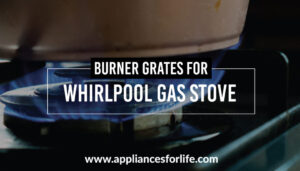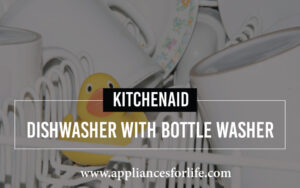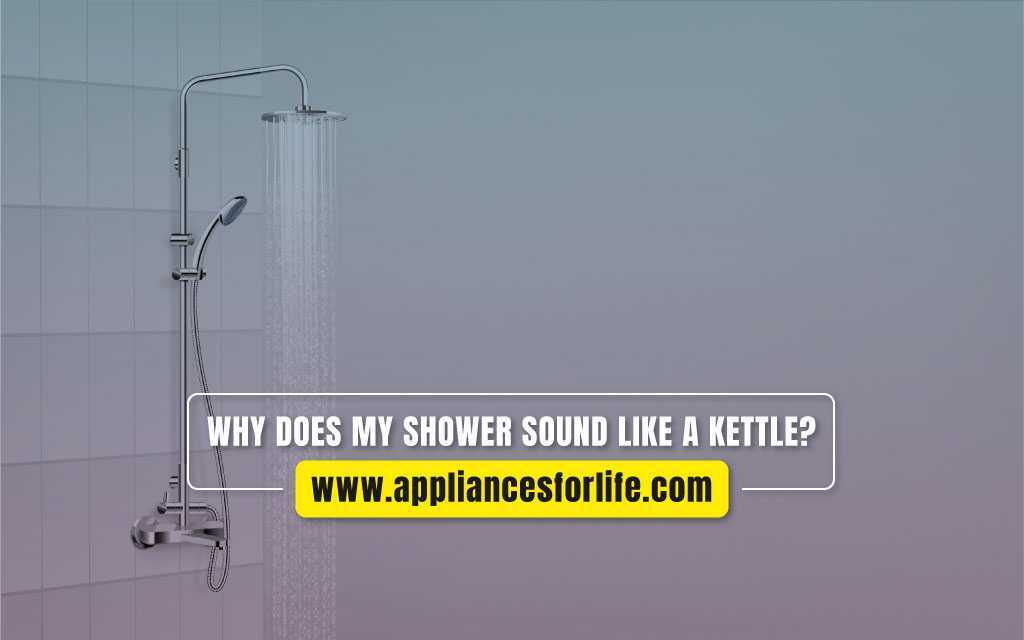Why Does My Shower Sound Like A Kettle
- A shower making a whistling noise is unusual and must be dealt with as soon as it’s observed. This article provides answers regarding why showers may sound like a kettle.
The bathroom is one of the important places in the house. It might as well be underrated because it barely gets mentioned at the expense of other parts of the house, including the kitchen and the bedroom.
The bathroom is one of the most important places in the house, and it should be taken care of. Having a clean bathroom is important because it reflects the cleanliness of the rest of the house. Not to mention, it’s a place where you can take a shower or just relax.
Imagine if your bathroom is not clean. It would be very unhygienic and uncomfortable. A clean bathroom is a sign of a good housekeeper. It shows that you are taking care of your house and paying attention to the details.
It is important to have a bathroom that is clean and comfortable. To have a clean bathroom, you need to have the right supplies. This includes toilet paper, shampoo, soap, and towels. You also need to make sure that the bathroom is cleaned regularly.
The shower is a big part of any bathroom, so you must always take care of it. Dulling blades, clogged drains, and other problems can quickly become the norm if you neglect your shower.
You can do a few simple things to ensure your shower stays in top condition; clean the showerhead once a week with a mild soap or a household cleaner. You can also use a soft cloth to scrub off dirt and debris. If your showerhead is hard to reach, try using a cup to dip down and clean the area around the sprayer.
You should also check the showerhead for mineral deposits at least once a month. If your showerhead shows mineral buildup, you can remove the deposits by soaking the showerhead in vinegar overnight. In the morning, simply rinse the showerhead with warm water and reattach it to the shower.
Without further ado, let’s explore some common shower problems you might encounter and how to fix them.
7 Common Shower Problems
Mineral deposit
Mineral deposits are common in any type of shower and can cause the shower head to make a whistling noise. Deposits can also cause the water pressure to decrease, making it difficult to rinse off. In extreme cases, mineral deposits can completely block the water flow. Most often, these deposits are made of calcium carbonate, which is found in hard water. Although mineral deposits are not harmful, they can be a nuisance.
A calcite deposit is the most likely mineral deposit to cause this problem. If you have hard water, there is a good chance that calcite has built up in your shower head. You can remove these deposits by soaking the shower head in vinegar for a few hours.
Damaged washer on the shower head
If the washer on your shower head is worn out or not working properly, it could make the sound of a whistling shower. You may notice that your water pressure is low or your shower head leaks. If you have a damaged washer, it is important to replace it as soon as possible. Otherwise, you could have a higher water bill or damage your home.
This can be very annoying and even damage your ears if left unchecked. You can usually tell if the washer is damaged by the sound it makes. If you hear a whistling sound, it is likely that the washer is not sealing properly and needs to be replaced.
This can be fixed by replacing the washer. If the diverter valve is not working properly, water can leak out of the shower head. This can be fixed by replacing the diverter valve.
High water pressure
If the water pressure in your shower is too high, it can cause the shower head to make a whistling noise. If your shower has a whistling noise, it is important to lower the water pressure to avoid any damage to your shower. There are a few ways to lower the water pressure in your shower. Turning the water pressure knob on the shower head to the left is one way. Another way is to use a shower head with a built-in pressure regulator.
You can check the water pressure in your home by using a water pressure gauge. Most hardware stores sell water pressure gauges. To check the water pressure in your home, simply attach the gauge to a faucet in your home and turn on the water. The needle on the gauge will tell you what the water pressure is.
The water pressure in your home should be between 40 and 60 psi. If the pressure is higher, it can cause problems with your plumbing and shower head. If you hear a whistling noise from your shower, having a plumber check the pressure in your home is a good idea.
Shower head not installed properly
If the shower head is not installed correctly, it can cause the shower to make a whistling noise. This is often caused by the shower head not being screwed on tightly enough. Another possible cause is that the washer on the shower head is old and needs to be replaced. In either case, the solution is relatively simple. First, ensure the shower head is screwed on as tight as possible.
A variety of factors can cause improper installation. The most common reason for improper installation is that the washer meant to seal the shower head is not put in correctly or is not the right size. If the washer is not sealing the shower head correctly, it can cause the water pressure to be too high, which will cause a whistling noise. Another reason for improper installation is that the shower head is not screwed on tight enough.
Presence of air in the pipes
If there is air in the pipes, it can cause the water to make a whistling noise as it passes through. The air may exist in the pipes due to a leak or other problem. Simply turning on the shower can cause the noise to occur. In many cases, the air in the pipes is not a serious problem and can be remedied without calling a professional.
If the pipes are not properly insulated, the water inside them can freeze and cause the pipes to burst. If the pipes are not properly ventilated, the water can build up and cause the pipes to burst.
The easiest way to eliminate this noise is to bleed the pipes by opening the valve at the highest point in the system and allowing the water to run until it is clear. If there is a lot of air in the system, it may be necessary to do this several times.
Loose pipes
If the pipes are loose, they can vibrate and cause your shower to whistle. There are several things you can do to fix this problem. You can use pipe insulation to help dampen the noise. You can also use pipe tape to help secure the pipes and prevent them from vibrating. If the problem persists, you may need to replace the pipes.
This can fix by replacing the pipes or tightening the pipes. If you have a leaky pipe, your shower may also be whistling. The whistling noise is caused by water passing through the small opening of a leaky pipe. The best way to fix a leaky pipe is to replace the pipes.
Leaky shower faucet
Your shower might be making a whistling noise for different reasons. If you have a leaky faucet, it can cause your shower to make a whistling noise. If the diverter valve is not installed properly, it can also make a whistling noise. There are many other reasons your shower might be making a whistling noise.
When you turn your shower on, the water should flow out of the shower head with only nominal noise. If your shower produces a high-pitched whistling noise every time you turn it on, your faucet may be to blame. Sometimes, the problem may be a loose washer or limescale deposits. Whatever the problem, it is generally an easy fix that any homeowner can perform.
How To Fix These Problems In 7 Easy Steps
There are several ways you can fix this problem:
Step 1
Start by removing the shower head and soaking it overnight in a vinegar solution (approx. 1 cup of vinegar to a gallon of water). This first step will help to break down the mineral deposits that are present inside the shower head.
Step 2
Next, use a toothbrush to scrub away any remaining deposits. (do not use the same toothbrush you use to brush your teeth).
Step 3
Rinse the shower head with clear, fresh water. Press the button on the shower arm to release it from the wall. Reattach the shower head to the arm.
Note: If you do not want to take the opportunity to clean your shower or tub, you can always clean it later.
Step 4
Allow the shower to run for a few minutes, then check to see if the noise has ceased. If it has not, move on to the next process stage.
Step 5
If the noise persists, try replacing the washer on the shower head. This common wear item may need to be replaced every few years. The washer is easy to replace, but you may want to enlist a professional to do the work for you.
Step 6
If you still have mineral deposits in your shower head, you may need to descale it (don’t worry, this is much simpler than it sounds!). All you need is a plastic bag and some vinegar. Fill the plastic bag with vinegar and attach it to the shower head with a rubber band. Let it soak for a few hours (check it from time to time), then remove and scrub away the deposits with a toothbrush or old toothbrush.
Step 7
If there is still some noise from your shower, try adjusting the temperature control to see if that resolves the problem. If not, you may need to call a plumber to investigate further.
If your shower is not making any noise, great! If it is, the next step is to adjust the temperature control. With some models, you may have to lower the temperature slightly to minimize the noise. Once you’ve made these adjustments, we recommend turning off the water and checking for leaks.
Frequently Asked Questions
1. Why does my shower make a squealing noise?
Your shower might make a squealing noise for several reasons. The most common reason is that your showerhead needs to be replaced. Over time, mineral deposits can build up in your showerhead, causing it to spray in different directions and make a squealing noise. Another common reason is that your pipes are not properly anchored. If your pipes are not properly anchored, they can rub against each other and make a squealing noise.
2. How to fix high-pitched noise from the shower?
Many times, homeowners experience strange noises emanating from the shower. If you have a high-pitched noise from your shower, there are a few possible causes. The first thing to check is the water pressure. If it is too high, it can cause noise in the pipes.
Conclusion
It is very unusual for a shower to sound like a kettle. It always indicates that there is something wrong with the shower and something has to be done about it as soon as possible. A shower should sound like a cascade of refreshing water, not like a noisy kettle.
There are a few reasons for this. The most common cause of a kettle-like noise is limescale. Limescale is a hard, chalky deposit that can build up in your shower over time. It’s usually caused by hard water, which has high mineral content.
We hope that this article has helped you understand the causes and how you can solve a noisy shower.
01 HOURS 03 MINUTES
ESTIMATED TIME DESIGNING AND UPLOADING THIS ARTICLE
10 HOURS 36 MINUTES
ESTIMATED TIME RESEARCHING AND WRITING THIS ARTICLE
You Might Also Like

40 Inch Electric Range To Fit Your Cooking Needs
Getting Warmed Up A 40-inch electric range is a great thing to have when you need to cook dinners for your family or special events. For those who love to cook and love something that helps with the efficiency and quality of your food, these

Lg Bottom Freezer Refrigerator Ice Maker Not Working
Most bottom refrigerators come with an ice maker and water dispenser that make them even more attractive and useful. In this article, we are going to be discussing the different possible causes of your LG bottom freezer refrigerator ice maker not working like it’s supposed

How To Make Blueberry Juice In A Juicer
As a big fan of juicing, you must have tried several juicing recipes in your juicer. Blueberry juice is one thing people are trying to learn how to make, and our guide for making blueberry juice in a juicer will teach you how to make

Navien Error Codes: A Guide to Help You Easy Fixing
Tankless water heaters, also known as on-demand water heaters, have revolutionized how we experience hot water in our homes. I. Introduction Understanding the Navien error codes is crucial for maintaining their optimal performance. These error codes serve as the unit’s communication method, alerting users to

The Best Burner Grates for Whirlpool Gas Stoves
Using a gas stove comes with a lot. When the current grates become old and don’t give you what you need any more, you’ll need to replace them with good and efficient ones. Our detailed review of the best burner grates for Whirlpool gas stoves

Vitamix immersion blender review
The idea of using immersion blenders in the kitchen is almost non-existent because people don’t just see what they do. After reading our detailed Vitamix immersion blender review, we hope your opinion about immersion blenders changes. Blenders have always been a necessary component of any

The Best KitchenAid Dishwasher With Bottle Washer
KitchenAid dishwasher with a bottle washer is a must-get if one must clean those bottles without leaving any leftovers or tiny food particles in them. However, if one can not find a Kitchenaid dishwasher with a bottle washer, third-rack KitchenAid dishwashers will still do the

When going camping the one thing everyone dreads is humid weather and hot tents. Tent air conditioners are the answer to your problem but you are probably asking yourself two questions, how do I choose the right one and which one do I buy? Don’t

How Hot Does A Hair Dryer Get? 5 Key Factors To Consider
Getting the perfect hair dryer temperature is important if you want to ensure that your hair is always protected. How hot does a hair dryer get? What is the best temperature for a hair dryer? Our guide will tell you everything you need to know

Delicious Pressure Cooker Pork Roast For You
The Pressure’s On! Pressure cooker pork roast is a great option when you’re tired of the more time and effort demanding methods of cooking meat. Chicken is great, but having other options to choose from is even better. Using your pressure cooker to make a delicious pork roast

